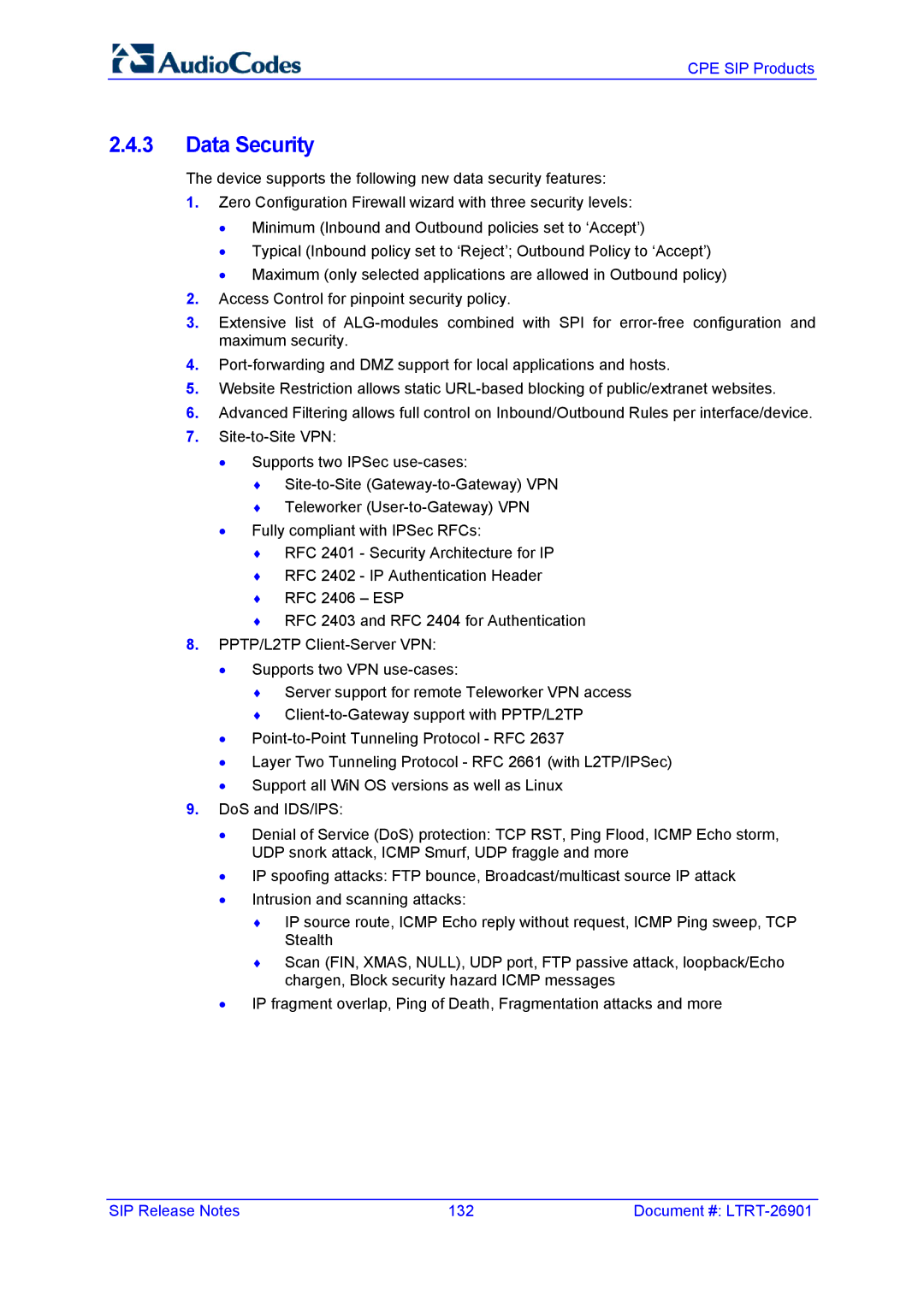
CPE SIP Products
2.4.3Data Security
The device supports the following new data security features:
1.Zero Configuration Firewall wizard with three security levels:
•Minimum (Inbound and Outbound policies set to ‘Accept’)
•Typical (Inbound policy set to ‘Reject’; Outbound Policy to ‘Accept’)
•Maximum (only selected applications are allowed in Outbound policy)
2.Access Control for pinpoint security policy.
3.Extensive list of
4.
5.Website Restriction allows static
6.Advanced Filtering allows full control on Inbound/Outbound Rules per interface/device.
7.
•Supports two IPSec
♦
♦Teleworker
•Fully compliant with IPSec RFCs:
♦RFC 2401 - Security Architecture for IP
♦RFC 2402 - IP Authentication Header
♦RFC 2406 – ESP
♦RFC 2403 and RFC 2404 for Authentication
8.PPTP/L2TP
•Supports two VPN
♦Server support for remote Teleworker VPN access
♦
•
•Layer Two Tunneling Protocol - RFC 2661 (with L2TP/IPSec)
•Support all WiN OS versions as well as Linux
9.DoS and IDS/IPS:
•Denial of Service (DoS) protection: TCP RST, Ping Flood, ICMP Echo storm, UDP snork attack, ICMP Smurf, UDP fraggle and more
•IP spoofing attacks: FTP bounce, Broadcast/multicast source IP attack
•Intrusion and scanning attacks:
♦IP source route, ICMP Echo reply without request, ICMP Ping sweep, TCP Stealth
♦Scan (FIN, XMAS, NULL), UDP port, FTP passive attack, loopback/Echo chargen, Block security hazard ICMP messages
•IP fragment overlap, Ping of Death, Fragmentation attacks and more
SIP Release Notes | 132 | Document #: |
